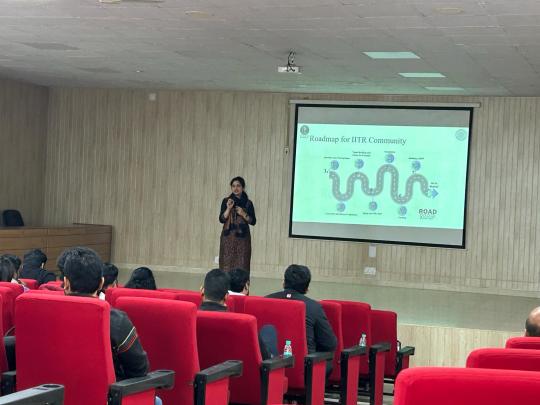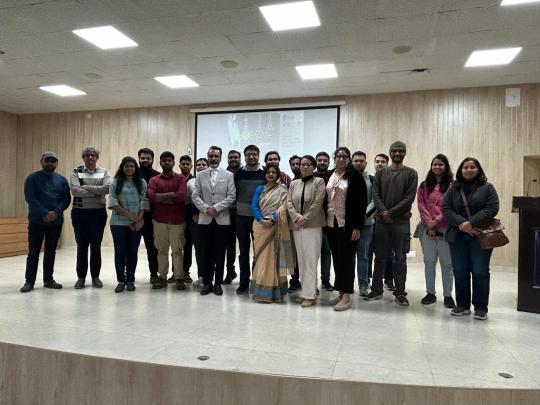#IPR
Text
World Ending Game - Saying Goodbye With Style
“Think about screenplays and films, or the final episode of a television show that you know will not be renewed. Think about saying goodbye to friends who are moving away. Think about the last day of summer vacation. Think about funerals. Think about the restaurant that closed all those years ago, and the noodles they used to serve. Think about the best birthday party you ever had. Think about…

View On WordPress
14 notes
·
View notes
Text
#REGISTERED YOUR TRADEMARK FILING TODAY &#PROTECT YOUR BRAND NAME LOGO FROM COPYCAT.#Legalcy#LegalcyPvtLtd#LegalcyPrivateLimited#trademark#copyright#patent#intellectualproperty#business#brand#design#lawyer#logo#branding#legal#trademarkattorney#trademarklawyer#entrepreneur#startup#registration#attorney#trademarkregistration#trademarks#law#ipr#companyregistration#trademarklaw#patents#graphicdesign
5 notes
·
View notes
Text
Imogene Pass Run
In the end… I finished. I didn’t think I’d make the cutoff time but I did. Yeah me. I don’t know if this was the hardest event I’ve ever done but it’s certainly top 5.

View On WordPress
2 notes
·
View notes
Text
Demystifying IPR Protection: Revealing the Essence of Intellectual Property Rights

Decoding Intellectual Property (IP)
Intellectual property is anything generated by the human mind, including works of literature, arts and designs, innovations, software codes, music, logos, symbols, names, or pictures used in the commencement of business. Intellectual property is the backbone of any brand identity and can change the fate of the creators or innovators. IP is essential for the creators to sustain the market and get recognition for their creations.
Alongside, the rise of various digital platforms that give the creators with distinct options to show their artistic expression and even monetize their intellectual assets. This inclusion of digital aspects has raised the name and fame of various artists and entities. The rising importance of intellectual property over digital interface has its obstacles like infringements and violations.
Understanding the Significance of Intellectual Property Rights
Intellectual property rights are essential to safeguard innovations and creations. IPRs aim to protect and give ownership rights to the original creators. It gives the creators and innovators legal rights over their work. It involves various processes, naming registration, enforcement mechanisms, and protection against unauthorized use. By deciphering and utilizing IPRs, creators and innovators can preemptively protect their creative assets and can run in a fair competition in the marketplace. It adds a layer of legal protection that can be leveraged by the creators to mitigate the risks like infringements and violations.
Grasping the Different Forms of Intellectual Property Rights
IPRs are bifurcated into several branches which provide IP Protection to the creators. Some of the most prominent ones are highlighted below-
Copyrights- they protect original creations like literary works, artistic ideas, music, lyrics, software codes, and works of theatre. It allows original creators to control and manage their works where only they can authorize the use, distribution, or reproduction. It bars people from using the works of creators without their permission.
Patents- they are the legal protection awarded to the creators for inventions, innovations, useful methods, and processes. Patents are granted for a set period and aim to encourage the innovative sides of creators. They provide the original creators or organization with a competitive edge over others.
Trademarks- they protect intellectual property like names, symbols, signs, phrases, designs, and slogans that differentiate one organization or company from that of others. They safeguard the distinctive identities of the brands or organizations. They serve to build a brand identity and establish its reputation amongst the customers.
Trade secrets- they safeguard the confidential and valuable information that is integral for the brand that has formed its identity around it in the marketplace. They protect recipes, chemical compositions, customer lists, and business methods. They allow the business to grow well in their niche without any worry of violations and infringements. Trade secrets rely on protecting secrecy.
Apart from them, there are several other IPRs that protect various other kinds of IPs. A few of them are industrial designs, geographical indications, and plant varieties. All these IPRs illustrate how they serve to protect several types of creations and innovations. Additionally, they create a fairground to safeguard their creative assets and incentivize them.
Howbeit, it is not easy to gain an IPR as the process itself needs some legal requirements and document verification. There comes MyIPR as your savior to protect and safeguard your business endeavors, artistic creations, and successive innovations.
MyIPR is designed to mitigate the issues of plagiarism, theft, and misuse of creative ideas. It is a user-friendly application that provides a smooth certification process. This certificate acts as primary evidence that can facilitate the IPR and can be used in case of any feuds or allegations.
Moreover, the interface has an integration with blockchain technology that makes it more reliable and robust for the users to protect and safeguard their creative assets. Besides, MyIPR has been molded with an advanced algorithm that can detect the similarities among the different ideas; it can further shrink the chances of the coincidence of double discoveries or processing similar ideas.
Conclusion
Intellectual property is the backbone of various industries, especially with digitalization, it has transformed the way the marketplace functions. But, with the advantages in this sector, there are various disadvantages like infringements, plagiarism, theft, and other IP related violations. Hence, to ensure the safety of creators, they rely on intellectual property rights.
There are several types of IPRs in the market that secure and protect diverse types of intellectual properties of the creators as well as organizations. MyIPR lines up with the same vision of providing creators with a platform that ensures the safety of all intellectual assets.
For more information and queries, please visit MyIPR, a user-friendly application that will streamline your creation and will make sure to comply with the security of the content and creation.
0 notes
Text
Expanding Your Brand Beyond Delhi: A Guide to International Trademark Registration

In today's globalized marketplace, businesses in Delhi are increasingly looking beyond local borders to expand their brand presence and reach new markets. One crucial step in this journey is securing international trademark registration. In this blog post, we'll explore how businesses in Delhi can take their brands global through international trademark registration, leveraging the expertise of trademark services available in the capital city.
Understanding the Importance of Trademark Registration in Delhi
The foundation for building brand identity and safeguarding intellectual property rights is trademark registration in Delhi. Whether you're a budding startup or an established corporation, registering your trademark provides legal protection against infringement and counterfeiting, safeguarding your brand's reputation and market share.
Leveraging Online Trademark Registration Services in Delhi
In today's digital age, the process of trademark registration has become more accessible and streamlined, thanks to online trademark registration in Delhi. Businesses can now initiate the registration process conveniently from their desktops or smartphones, saving time and effort.
Exploring Trademark Services in Delhi
Delhi offers a plethora of trademark services catering to the diverse needs of businesses seeking to protect their brands. From conducting comprehensive trademark searches to filing applications and providing legal guidance, trademark service in Delhi plays a pivotal role in simplifying the registration process and ensuring compliance with regulatory requirements.
Navigating the Process of Trademark Registration Online in Delhi
With the help of reputable trademark registration companies in Delhi, businesses can navigate the intricacies of the registration process with ease. These companies offer end-to-end solutions, including document preparation, application filing, and correspondence with trademark authorities, allowing businesses to focus on their core operations while experts handle the legalities.
Choosing the Right Trademark Registration Company in Delhi
Selecting the right trademark registration company is crucial for a smooth and successful registration process. Businesses should look for firms with a proven track record, experienced professionals, and transparent pricing structures. By partnering with a reputable trademark registration company in Delhi, businesses can ensure efficient handling of their trademark applications and peace of mind knowing their brands are in safe hands.
Going Global: The Importance of International Trademark Registration
While trademark registration in Delhi protects within the national borders, expanding globally requires a broader approach. International trademark registration enables businesses to extend their brand protection to multiple countries, establishing a strong foundation for international expansion and growth.
Conclusion
As businesses in Delhi strive to expand their reach beyond local markets, international trademark registration emerges as a crucial strategy for protecting their brands on a global scale. By leveraging the expertise of trademark services in Delhi and embracing the online registration process, businesses can navigate the complexities of trademark registration with confidence, paving the way for success in the global marketplace.
READ OUR OTHER BLOGS TO KNOW MORE ABOUT TRADEMARK REGISTRATION SERVICES IN INDIA
Simplifying Trademark Registration in Delhi: The Impact of Intellectual Property Consultants
Streamlining Trademark Registration Processes in Delhi: How Online Tools and Platforms are Revolutionizing the Process
Streamlining Trademark Registration in Delhi: Transitioning from Paperwork to Pixels
The Vital Role of Trademark Registration in Fueling Delhi's Booming Startup Landscape
Streamlining Business Operations: The Power of Online Trademark Registration in Delhi
#trademark#trademarkfiling#trademark protection#trademarkregistration#trademark application#trademark registration#trademark infringement#delhi#registration#filling#protection#IPR#trademark consultant#consultant#company#trademark company
0 notes
Text
https://www.lloydlawcollege.edu.in/blog/interface-between-ipr-and-competition-law.html
Demystify the complexities of Intellectual Property Rights (IPR) and Competition Law with our latest blog post. Delve into the distinct realms of these legal domains, exploring their objectives, scope, and implications. Gain clarity on how IPR safeguards innovation and creativity, while Competition Law ensures fair market practices and consumer welfare.
0 notes
Text
Empowering Innovation: How Intellectual Property Rights Services Drive Business Success
In today's competitive business landscape, innovation is key to driving growth and staying ahead of the curve. Intellectual property (IP) plays a crucial role in protecting and monetizing innovative ideas, products, and processes. Intellectual Property Rights (IPR) services are instrumental in safeguarding these assets and ensuring that businesses can reap the full benefits of their innovations. This article explores how IPR services empower innovation and drive business success.
What is Intellectual Property Rights
Intellectual Property Rights (IPR) refer to legal rights that protect creations of the mind, such as inventions, literary and artistic works, designs, symbols, names, and images used in commerce. These rights enable creators and innovators to control the use of their creations and reap financial rewards from their investment in innovation.
The Role of IPR Services in Business Success
1. Protection of Innovations
IPR services help businesses protect their innovations through patents, trademarks, copyrights, and trade secrets. By securing these rights, businesses can prevent competitors from copying or using their ideas without permission, thereby safeguarding their competitive advantage.
2. Monetization of Intellectual Property
IPR services assist businesses in monetizing their intellectual property by licensing or selling their rights to third parties. This can be a significant source of revenue for businesses, allowing them to capitalize on their innovations and expand their market reach.
3. Risk Management
IPR services help businesses manage the risks associated with intellectual property infringement. By conducting thorough IP audits and clearance searches, businesses can identify and mitigate potential risks before they escalate into costly legal disputes.
4. Enhancing Market Value
IPR services enhance the market value of businesses by establishing a strong intellectual property portfolio. A robust IP portfolio not only attracts investors and partners but also increases the valuation of the business in the eyes of potential buyers.
5. Fostering Innovation Culture
IPR services play a crucial role in fostering a culture of innovation within organizations. By rewarding employees for their innovative ideas and providing them with the necessary legal protection, businesses can encourage creativity and drive continuous improvement.
Case Studies: How IPR Services Drive Business Success
1. Pharmaceutical Industry
In the pharmaceutical industry, patents are essential for protecting new drugs and treatments. Pharmaceutical companies invest heavily in research and development (R&D) to bring new drugs to market. IPR services help these companies secure patents for their innovations, allowing them to recoup their R&D costs and generate profits.
2. Technology Sector
In the technology sector, patents are crucial for protecting new technologies and inventions. Companies like Apple, Google, and Microsoft rely on patents to protect their innovative products and services. IPR services help these companies navigate the complex patent landscape and defend their intellectual property against infringement.
3. Entertainment Industry
In the entertainment industry, copyrights are essential for protecting artistic works such as music, films, and books. Copyright infringement is a significant concern for artists and creators, and IPR services play a vital role in protecting their rights and ensuring fair compensation for their work.
Conclusion
Intellectual Property Rights (IPR) services are instrumental in empowering innovation and driving business success. By protecting and monetizing intellectual property, IPR services enable businesses to leverage their innovations for competitive advantage and financial gain. As businesses continue to innovate and expand into new markets, the role of IPR services will only become more critical. Embracing IPR services as a strategic business tool is essential for businesses seeking to thrive in today's innovation-driven economy. Contact Us for more Information.
#IPR#intellectual property#outsourcing consultancy#finance and accounting#taxation services#taxation#intellectualknowledge#intellectualpropertyservices#FEMA compliance#intellectual property rights
1 note
·
View note
Text

The Startup India Scheme, launched in 2016, aims to foster innovation and entrepreneurship in India. It offers benefits such as tax exemptions and easier registration, facilitating the growth of innovative ventures. With simplified processes and government support, startups find a conducive environment
#StartupIndia#Entrepreneurship#Innovation#IndianGovernment#EconomicGrowth#TaxExemption#RegistrationProcess#SupportiveEcosystem#FundingSupport#IPR#VentureCapital#GovernmentInitiative
0 notes
Text
Intellectual Property Rights is a right which is connected with the person or the company’s intangible property. Like, goodwill. When that right is used without consent or used for causing loss to an individual
0 notes
Text
2024: New Top Data Regulator; Can IPR Improve Data Sharing?
Central guidance from the recently-established National Data Administration (国家数据局) promises to reduce the current confused situation of “twenty dragons ruling the waters”. Poor IPR protection for data reduces efficiency overall as it can make some companies and local governments hold tightly to data that would otherwise circulate more widely.
In 1997 when I worked in the U.S. Embassy Beijing I…

View On WordPress
#Big Data#China#Chinese#coordination#data#data sharing#government#intellectual property#IPR#National Data Administration#politics#PRC#regulation#中国
0 notes
Text
The Facility - A Breathless Choose Your Own Mad Science Adventure
The Facility - A Breathless Choose Your Own Mad Science Adventure
You awaken, cold and in the dark. Fumbling around by low blue lights in a coffin shaped pod. You pull yourself out of the box, and in the dark see the faces of others. You are all wearing loose fitting white clothing and laceless shoes. Hospital patients? You peer into the dark, seeing little but hearing the sound of dripping, running water and distant machinery. You gather what you can, knowing…

View On WordPress
1 note
·
View note
Text
youtube
How To Proceed TradeMark Application For Registration
Call us or WhatsApp 088516 16800
#Legalcy#Legalcyy#LegalcyPvtLtd#LegalcyPrivateLimited#trademark#copyright#patent#intellectualproperty#business#brand#design#lawyer#logo#branding#legal#trademarkattorney#trademarklawyer#entrepreneur#startup#registration#attorney#trademarkregistration#trademarks#law#ipr#companyregistration#trademarklaw#patents#graphicdesign#Youtube
0 notes
Text





The IPR Cell recently convened a workshop on 24th February on "Innovation, Intellectual Property Rights (IPR), and Entrepreneurship Development" to explore the symbiotic relationship between innovation, intellectual property, and entrepreneurship. For fostering a culture of innovation and leveraging intellectual property for entrepreneurial growth, the workshop provided participants with invaluable insights into the nexus of these domains. Through interactive sessions, expert panels and attendees delved into strategies for nurturing innovation, protecting intellectual property, and catalyzing entrepreneurial ventures.
#iitroorkee#IPR#Innovation#EntrepreneurshipDevelopment#MINISTRY OF EDUCATION#GOVERNMENT OF INDIA#Ministry of Electronics and Information Technology#Digital India Programme.
0 notes
Text
Legality of NFTs in India as per IPR: All You Need to Know

This article on 'NFTs legality as per IPR: All You Need to Know' was written by Madiha Khan, an intern at Legal Upanishad.
Introduction
NFTs, or non-fungible tokens, are a type of cryptocurrency token that comprises a variety of physical and virtual properties. It includes images, gifs, drawings, movies, multimedia recordings, and other media. Each NFT is distinct and regarded as a rarity. A blockchain digital journal is used to document NFTs in a way that confirms their originality and legitimacy. Blockchain technologies are digital blocks that keep track of all the transactions involving the virtual digital asset, also known as VDA, where the data and title of NFTs holders are kept. The Intellectual property laws apply to royalty-free licenses on how their CryptoPunks may be used in derivative works belonging to NFT holders.
NFTs procedure
After establishing an NFT, the "smart contracts" replace the current system for the storing and exchanging of digital assets. A smart contract can be thought of as software programs connected to the NFT that includes information, guidelines, and rights relating to the primary asset joined to the NFT, like royalties from music, bonds, invoices, and so on. Thus, the "Tokenization" mechanism enables the original token creator to profit financially from future NFT buyers, which is made possible by the token's uniqueness. Authors can receive royalties on successive future sales of the original work within an NFT on popular NFT platforms like NiftyGateway, Rarible, OpenSea, etc
Intellectual Property Protection
NFTs might be covered by intellectual property rights such as copyrights, design, and trademark protections. As a result, buyers of NFTs should be aware of any associated intellectual property rights. Although design patents may be able to protect some NFT-protected assets, those NFTs would still be restricted by the same legal restrictions as conventional products and services. However, some NFTs may be subject to trademark and copyright protection. Plausibly, NFTs could be tied to a legal right. The right to own one copy of the creative work (in the same way as one may own any goods or asset) and the freedom to make replicas and produce variants, however, are two distinct rights.
Copyrights protection
Even though NFTs are a pretty modern and somewhat unusual sort of art, copyright law will perceive them in the same manner as any other conventional works of art. They instantaneously become the owner of that work. Selling the printed copy or tangibly printed NFTs is not allowed, however, printing a non-fungible token is much simpler. Certain NFTs violate copyright laws by employing works of art that have been stolen from creators or well-known pieces that the NFT developers are not affiliated with and do not have permission to use.
Copyright infringement can also occur even when these works are copied for NFT marketing purposes. An NFT can be screenshotted only for private use and infringement can occur if you resell it, claim ownership of it, share it online or elsewhere, or create a copy of the work for commercial purposes. If such actions are done, the NFT's proprietor may file a lawsuit against the infringer for copyright infringement, or be charged with additional crimes.
Where copyright is concerned the title of the core rights can only be transferred to the NFT holder if the original work's author expressly approves doing so. Based on the terms of the transaction, an NFT owner may not be permitted to recreate, advertise copies, display the work publicly, showcase, or make backup copies of the original property only when copyright is transferred via licensing. Under Section 14 of the Indian Copyright Act of 1957, the copyright owner is granted several privileges, including the ability to make copies and alterations.
When a customer purchases an NFT that correlates to artistic activity, they also receive a copy of the underlying work (in some digital format, such as.jpeg,.pdf, or.mp4) in addition to the NFT itself, or tokens. Any unauthorized use of an NFT and sending it to a client could be construed as copyright infringement. This goes for any unlawful distribution, copying, or adaptation of an NFT.
Imposing IP rights against a buyer after an NFT sale can be difficult because NFT ownership is decentralized and blockchain transactions are immutable. Similar to a bank account, an NFT is typically associated with a mobile wallet address, but without strong digital evidence, identifying the wallet owner could be challenging. Thus, utilizing legally powerful takedown notices might stop the NFT from ever being sold.
The legality of NFTs
If NFTs were classified as derivatives, dealing in them would be prohibited in India since, in accordance with Section 18a of the SCRA (securities contract regulation act), such activity is not permitted on the internet. They are regarded as valid only when derivative transactions are traded on a lawful stock exchange. Commercial transactions known as derivatives generate their value from an underlying asset. These could include interest rates, indexes, commodities, currencies, exchange rates, and equities. By wagering on the appreciation of the underlying asset, these investment products assist in generating income.
The person who mints/makes the NFT is the rightful owner of it. Therefore, in reality, the NFT's owner is not always the author/creator. Nonetheless, minting an NFT of work for that another party owns the rights will effectively be regarded as the work's theft and a copyright violation. In 2018, the Reserve Bank of India (RBI) tried to outlaw the usage of bitcoin or cryptocurrencies. In reaction to the aforementioned order, a few businesses that run online crypto trading platforms and other groups filed appeals.

NFTs legality in India as per IPR: All You Need to Know
Suggestion
Misuse of an NFT or other IP connected to an NFT, you run a legal risk and can potentially be sued. Always beware that the work is not copyrighted content of another if you are an NFT author. Similarly, if you are an NFT holder, follow the rules that are there for your NFT to avoid infringement.
Always be alert and avoid clicking on dubious sites as it could be malicious and harm or hack your device by disclosing your password, or through user error, your NFT could be taken. Technically, a hacker would need access to your wallet in order to steal your NFT; otherwise, they would just be pulled out of thin air. With the advancement in technology, NFT can be stolen in several ways.
Conclusion
Therefore, it is crucial to make a distinction between both the sovereignty of the NFT and the IP that supports it when looking at the property rights implications of NFTs. The powers given through a license or assignment can differ from one NFT to the next, determining the rights provided by an NFT seller. India ought to take inspiration from nations with well-balanced legal and regulatory systems to reduce loopholes and avoid infringement of the rights of the author. NFTs do have advantages and disadvantages. The disadvantage is that there is no stability, and the public is concerned that the NFTs are blatantly overstated as well as the possibility that the NFT market might collapse.
Reference
- Bipul Kumar, 6th June, 2022, at:- https://www.khuranaandkhurana.com/2022/06/06/nfts-and-indian-law/
- ,September 5, 2022 https://blog.ipleaders.in/is-nft-legal-in-india/#:~:text=TradinginNFTswouldbe,onarecognisedstockexchange.
- Pravertna Sulakshya, Khurana and Khurana, 17 November 2021, at: https://www.mondaq.com/india/fin-tech/1132188/nft-and-its-relationship-with-ipr
Read the full article
#Copyright#Intellectualpropertyrights#IPR#LawsinIndia#NFT#NFTs#non-fungibletokens#TRADEMARKS#TRADEMARKSININDIA
3 notes
·
View notes
Text
Decoding Intellectual Property: A Guide to Rights and Ownership

In a world that delves in and around technology and where everyone is vulnerable to issues like copying or plagiarism, it is the need of an hour to protect intellectual property in the same way we protect our physical property. Imagine writing a book with all the zeal and vigour and with an intent to publish it later, but what happens if the content of the book gets stolen by someone who is being appreciated for the stories you have created? You will end up losing something precious your intellect has created.
Now, what if you are provided with a scenario where you can hold responsible the person who has stolen your story, and then the due credit is given to you as an original creator of the same? This is what MyIPR does. MyIPR is the world’s first intellectual property rights management cloud, which protects intellectual property and provides ownership of discoveries. It is an easy-to-use application designed to streamline intellectual discoveries.
IPR acronym for Intellectual Property Rights provides a certain set of legal rights to the creators or inventors to protect their intellectual property like artistic ideas or creations, literature, pictures used for the commencement of commerce and business, titles, ideas for any scientific endeavours, and designs.
In the era of digitalization, where people can copy, steal, or plagiarise ideas in the blink of an eye, everyone strives to protect their work. This can be insured by several traditional as well as technical ways where the conventional way bears the additional costs if the product is complex and sometimes even comes into the face of pirating.
Types of intellectual property
There are different types of intellectual property, and the following four are the most common ones.
Copyright
Copyright is a legal terminology that provides ownership to both tangible as well as intangible works, including literature, drawing, sound recording, photography, music, and dramatic creations. This further gives the creators economic rights, allowing them to rent, lend, or distribute their works.
Patents
A Patent is an intellectual property right granted to unique creations that ensures protection from being copied, manufactured, or sold without the permission of the authorised person. Another noteworthy aspect of patents is that the inventor or the creator can license them for others to use.
Trademarks
Trademarks are the legal registration for the recognition of a particular design, symbol, icon, mark, pattern, name, or combination of numbers and letters that is used for the business identity. They are an essential part of business and economy to ensure a loyal customer base and are crucial in building brand value and reputation.
Trade Secrets
A Trade secret is a legal practice or process where confidential business information remains within the company. Trade secrets include various kinds, including formulas, business strategies, customer lists, patterns, recipes, and designs, which ensure economic profit to the company and give it the upper hand over competitors. Dissimilar to the above-mentioned intellectual property rights, trade secrets do not require registration.
All these IPR protection processes confer the owners with the exclusive rights to establish the ownership of the rightful inventor or creators and bar them from being copied, mimicked or exploited. Along the same line of protecting the ownership of the original creator, MYIPR provides legal expertise in the case of infringement and misappropriation. In this platform, the creators get a digitally generated certificate of creation to confirm their proprietorship, along with the date and time of the inventions.
MyIPR’s importance lies in both its user-friendly interface as well as its standout feature of regularized Distributed Ledger Technology (DLT) which further empowers the evidence of ownership. Moreover, MyIPR provides with fingerprint and watermark technology, in addition to the algorithms that ensure the detection of similarities and barring possible infringement.
Conclusion
Managing and safeguarding both the IP as well as the IPR is a tough task and calls for the amalgamation of legal expertise and technical guidance to enhance the overall security of the works and ideas. The economy is no longer restricted to the material world but has encompassed the boundaries of the digital world, hence blurring the lines. MyIPR aligns with the ongoing user-based demands by providing a reliable solution to theft and plagiarism. It ensures user privacy and strictly adhered to the regulatory requirements.
0 notes
Text
The Vital Role of Trademark Registration in Fueling Delhi's Booming Startup Landscape

Introduction to trademark registration
As an entrepreneur in Delhi's vibrant startup scene, I have come to understand the vital role that trademark registration plays in the success and growth of businesses. Trademark registration is the process of legally protecting your brand's name, logo, or slogan. It not only provides exclusivity but also establishes credibility and trust among customers. In this article, I will delve into the importance of trademark registration in Delhi's startup landscape and highlight the benefits it brings to businesses.
Importance of trademark registration in Delhi's startup scene
In a city like Delhi, where competition among startups is fierce, having a unique and distinctive brand identity is crucial. Trademark registration ensures that your brand is protected from infringement and prevents others from using a similar name or logo, thereby safeguarding your business's reputation. Moreover, registered trademarks are valuable assets that can be licensed or sold, providing an additional revenue stream for startups.
Another significant advantage of trademark registration in Delhi is the protection it offers against counterfeiting. With the rise of e-commerce and the availability of counterfeit products, registering your trademark becomes even more essential. It allows you to take legal action against counterfeiters and protect your customers from purchasing fake or low-quality goods.
This not only preserves your brand's integrity but also strengthens consumer trust and loyalty.
Additionally, trademark registration in Delhi enhances your company's visibility and distinguishes it from competitors. The trademark symbol (®) signifies that your brand is officially recognized and adds a professional touch to your products or services. It helps potential customers identify and remember your brand, leading to increased brand recognition and recall. This can be especially beneficial in the crowded startup ecosystem of Delhi, where standing out is a challenge.
Benefits of trademark registration for businesses
Trademark registration in Delhi offers several tangible benefits to startups and businesses. Firstly, it grants you exclusive rights to use the registered mark, giving you a competitive advantage in the marketplace. This exclusivity allows you to differentiate your products or services, attract customers, and build a distinct brand identity.
Secondly, trademark registration acts as a deterrent for potential infringers. When your trademark is registered, it becomes a public record, making it easier for others to identify and avoid using a similar mark. This reduces the likelihood of costly legal disputes and saves your business time and resources.
Moreover, registered trademarks are valuable intangible assets that can be appreciated over time. As your startup grows and gains recognition, your trademark becomes more valuable. It can be licensed to other businesses, generating additional revenue streams, or even sold if you decide to exit or expand your business. Trademark registration thus provides a long-term strategic advantage to startups in Delhi's thriving entrepreneurial ecosystem.
Understanding the process of trademark registration in Delhi
Now that we have established the importance and benefits of trademark registration, let's dive into the process of registering a trademark in Delhi. The first step is to conduct a comprehensive trademark search to ensure that your desired mark is available for registration. This search helps identify any existing trademarks that may conflict with your proposed mark and allows you to make informed decisions.
Once you have conducted the search and are satisfied with the availability of your mark, you can proceed with the application process. In Delhi, trademark registration can be done online through the Intellectual Property India website. The application requires detailed information about your brand, including the mark, the goods or services it represents, and supporting documents. To prevent delays or rejections, it is essential to give accurate information and adhere to the requirements.
After submitting your application, it undergoes a thorough examination by the Trademark Registry. The examination includes assessing the distinctiveness of your mark and checking for any conflicts with existing trademarks. If there are no objections or oppositions, your brand will be listed in the Trademark Journal. This publication allows others to oppose your registration within a specified period.
If no oppositions are raised, your trademark will proceed to registration, and you will receive a Certificate of Registration. This certificate is proof of your exclusive rights and can be used to enforce your trademark if necessary. It is important to note that the trademark registration process in Delhi can take several months to complete, so patience and timely follow-up are key.
Online trademark registration in Delhi
Delhi's startup ecosystem thrives on innovation and technology, making online trademark registration a preferred choice for many entrepreneurs. Online registration offers convenience, speed, and accessibility, allowing startups to streamline the process and focus on their core business activities.
To register your trademark online in Delhi, visit the Intellectual Property India website and create an account. The website provides a user-friendly interface with step-by-step instructions to guide you through the application process. You can fill in the required details, upload supporting documents, and make the necessary payments online. The online system also enables you to track the status of your application and receive updates directly through email.
While online trademark registration in Delhi offers numerous advantages, it is essential to ensure that you provide accurate and complete information during the application process. Any errors or discrepancies can lead to delays or rejections, prolonging the registration process. Therefore, it is advisable to seek professional assistance or consult a trademark registration company to ensure a smooth and error-free application.
Choosing a trademark registration company in Delhi
For startups and entrepreneurs in Delhi, selecting a reliable and experienced trademark registration company is crucial for a seamless registration process. A trademark registration company can provide expert guidance, handle the paperwork, and navigate the complexities of the trademark registration system on your behalf.
When choosing a trademark registration company in Delhi, consider factors such as their reputation, track record, and expertise in trademark law. Look for companies that have a thorough understanding of the trademark registration process and can provide comprehensive services, including trademark searches, application filing, and post-registration support.
It is also advisable to choose a trademark registration company that has experience in your specific industry or niche. This ensures that they understand the unique challenges and requirements of your business, allowing for a more tailored and effective trademark registration strategy.
Trademark services available in Delhi
Delhi offers a wide range of trademark services to support startups and businesses in their registration journey. These services cater to different needs and budgets, providing flexibility and convenience for entrepreneurs.
Trademark services in Delhi to help you determine the availability of your desired mark and identify any potential conflicts. These searches are conducted by professionals who have access to comprehensive trademark databases and can provide accurate and reliable results.
Trademark filing services are also offered in Delhi, where experts assist you in preparing and filing your trademark application. They ensure that all the required information is provided correctly and guide you through the documentation and payment processes. This saves you time and effort, ensuring that your application is submitted accurately and efficiently.
Furthermore, post-registration services are available in Delhi to help you manage and protect your registered trademark. These services include trademark monitoring, which involves monitoring the marketplace for potential infringement, and trademark renewal, which ensures that your registration remains valid and in force.
Common misconceptions about trademark registration in Delhi
Despite the importance and benefits of trademark registration, there are some common misconceptions that entrepreneurs in Delhi should be aware of. One such misconception is that registering a company name or domain name provides the same level of protection as a registered trademark. While company registration and domain name registration are important, they do not offer the same legal protection and exclusivity as a registered trademark.
Another misconception is that trademark registration is a one-time process. In reality, trademark registrations need to be renewed periodically to maintain their validity. In India, trademarks are initially registered for ten years, and they can be renewed indefinitely as long as the renewal fees are paid on time.
It is also important to note that trademark registration does not provide automatic global protection. Trademarks are territorial, which means that registration in one country does not automatically protect your mark in another country. If you plan to expand your business beyond Delhi or India, it is advisable to consider international trademark registration or seek legal advice regarding trademark protection in specific jurisdictions.
Tips for successful trademark registration in Delhi
To ensure a successful trademark registration in Delhi, here are some tips that entrepreneurs should keep in mind:
Conduct a comprehensive trademark search before filing your application to avoid potential conflicts or objections.
To prevent delays or rejections throughout the application process, provide true and comprehensive information.
Seek professional assistance or consult a trademark registration company to navigate the complexities of the trademark registration system.
Maintain proper records and documentation related to your trademark, including evidence of use and licensing agreements.
Monitor the marketplace for potential infringement and take prompt action if your trademark rights are violated.
Renew your trademark registration on time to maintain its validity and protection.
Leveraging trademark registration for startup success in Delhi
In conclusion, trademark registration plays a vital role in fueling Delhi's booming startup landscape. It not only protects your brand identity but also enhances your business's credibility, visibility, and revenue potential. By understanding the process, leveraging online registration, and seeking professional assistance, startups in Delhi can secure their intellectual property rights and gain a competitive edge in the market. By taking advantage of the benefits of trademark registration, entrepreneurs can pave the way for long-term success and growth in Delhi's dynamic startup ecosystem.
READ OUR OTHER BLOGS TO KNOW MORE ABOUT TRADEMARK REGISTRATION SERVICES IN INDIA
Safeguard Your Innovations: The Significance of Online Trademark Registration in Delhi
Navigating Trademark Registration in Delhi: Unraveling the Distinctions Between Offline and Online Processes
Simplifying Trademark Registration in Delhi: The Impact of Intellectual Property Consultants
Streamlining Trademark Registration Processes in Delhi: How Online Tools and Platforms are Revolutionizing the Process
Streamlining Trademark Registration in Delhi: Transitioning from Paperwork to Pixels
#trademark#trademarkfiling#trademark protection#trademarkregistration#trademark application#trademark registration#trademark infringement#delhi#registration#filling#protection#IPR#trademark consultant#consultant#company#trademark company
0 notes